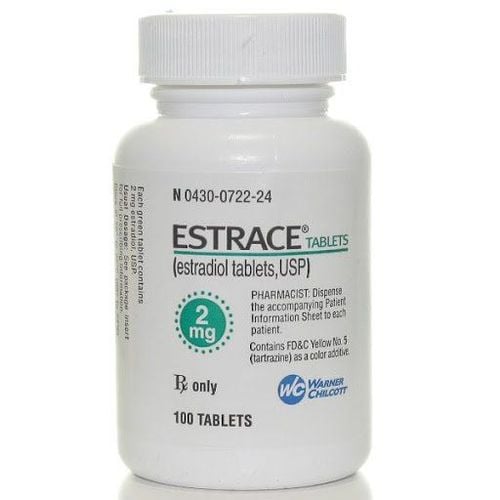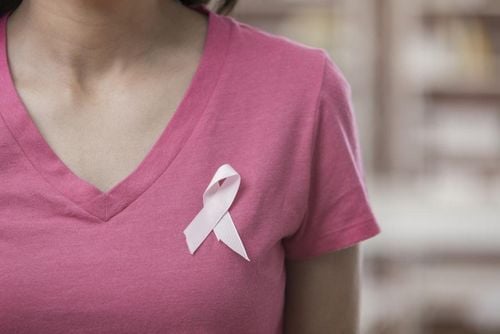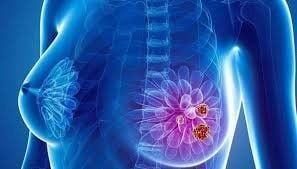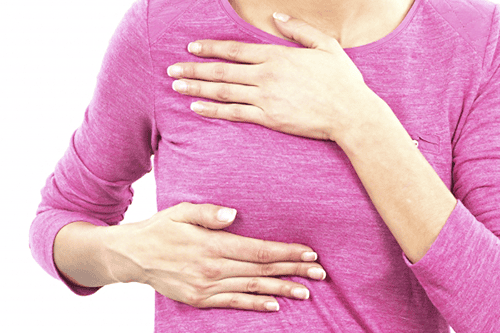This is an automatically translated article.
The article was professionally consulted by Dr. Nong Ngoc Son - Chemotherapy and palliative treatment - Oncology Center - Vinmec Central Park International General Hospital.Breast cancer is the most common cancer in women. It is the leading cause of cancer morbidity and mortality in women. However, many women do not know the factors that can increase the risk of breast cancer, by the time it is detected, the disease is already at an advanced stage and the likelihood of successful treatment is not high. Here are nine risk factors for breast cancer in women to watch out for.
1. Gender, age
Women are 100 times more likely to develop breast cancer than men, and it is most common between the ages of 40 and 60.
2. Gen
About 5-10% of breast cancer patients have a gene mutation. Common gene mutations such as:
BRCA1 gene is located on chromosome 17 and BRCA2 gene is located on chromosome 13. Normally, these two genes are responsible for repairing cell-forming DNA. 2 leads to the development of abnormal cell lines that in turn lead to cancer. Those who carry mutations in these 2 genes often have a higher risk of breast cancer at a young age, breast cancer on both sides as well as a high risk of developing other types of cancer, especially ovarian cancer. Other gene mutations such as ATM, TP53, PTEN, CDH1, STK11, PALB2 gene mutations are rare mutations that can be found in breast cancer. Currently, gene testing can detect BRCA1 and BRCA2 gene mutations, TP53 helps in prognosis and screening of breast cancers.
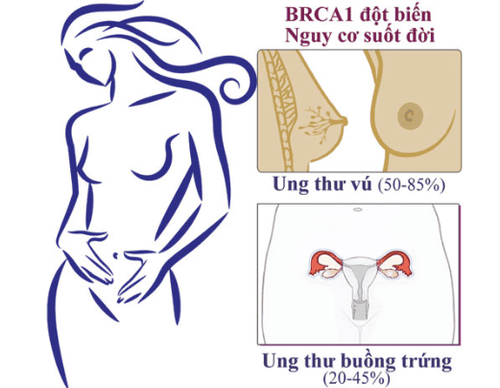
3. Heredity
About 15% of women with breast cancer have a family history of previous breast cancer. If one person in the family has had breast cancer (mother, aunt, younger sister), the risk of breast cancer is doubled. Having two people with breast cancer triples the risk. Women whose father or brother has the disease have a higher risk of developing breast cancer than the general population.
Most cases of breast cancer are inherited from 2 genes BRCA 1 and 2.
4. Early menarche and late menopause
People with a history of early puberty (before 12 years of age) and late menopause (after 55 years of age) have a higher risk of breast cancer than the general population. This is because these women are under the long-term effects of the hormones Estrogen and Progesterone.
5. Not giving birth or not breastfeeding
Women who do not have children or give birth to their first child late after the age of 30, do not breastfeed have a higher risk of breast cancer than the general population.
6. You yourself have breast disease or have ever had cancer
Breast fibroids, breast abscess...if not treated promptly, it will lead to irreversible damage in the breast area and progress to cancer. Moreover, the diagnosis of breast cancer will be much more difficult if the patient has additional breast diseases.
People who have had cancer such as ovarian, peritoneal, or fallopian tube cancer or have had radiation therapy to the chest area also have a higher risk of breast cancer than the general population.
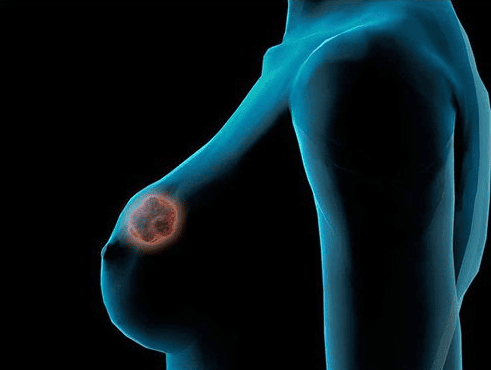
7. Diet, obesity
Women who drink alcohol, diet high in fat, sugar increase the risk of breast cancer.
Being overweight or obese after menopause increases the risk of breast cancer. In women of reproductive age, most estrogen is produced from the ovaries, a very small amount is produced from adipose tissue. After menopause, the ovaries stop working, overweight and obese women have high levels of estrogen in the blood, thus increasing the risk of breast cancer. In addition, in obese people, high levels of insulin in the blood increase the risk of certain cancers, including breast cancer.
Obesity not only increases the risk of breast cancer but also increases the risk of cardiovascular diseases, blood fats and ovarian cancers, colorectal cancer, liver cancer...
8. Sedentary
There are many studies that show that physical inactivity increases the risk of breast cancer. Vigorous physical activity of at least 2 hours a week reduces the risk of breast cancer.
9. Birth control pills, hormone therapy
Women who prevent pregnancy by taking the pill or by using a hormonal contraceptive have a higher risk of breast cancer than other non-hormonal methods of contraception.Preventing breast cancer: To prevent the risk of breast cancer, you should take the following measures:
Eat a lot of vegetables and fruits such as cabbage, broccoli... can reduce 20-40 % rate of breast cancer. Reduce some fatty foods such as cakes, pizza, hot dogs... Limit alcoholic beverages Quit smoking Regularly checking your breasts is a measure recommended by doctors to detect signs of cancer in time. breast at home. Regular exercise Regular breast examination every 6 months to check for abnormalities in the breast and timely treatment. Vinmec International General Hospital has been implementing packages for screening and early detection of breast and gynecological cancers for female customers over 40 years old, who need to be able to screen for cancer. gynaecology (cervical, uterus, ovary). Support customers to examine and detect disease early to have timely treatment.
Please dial HOTLINE for more information or register for an appointment HERE. Download MyVinmec app to make appointments faster and to manage your bookings easily.





